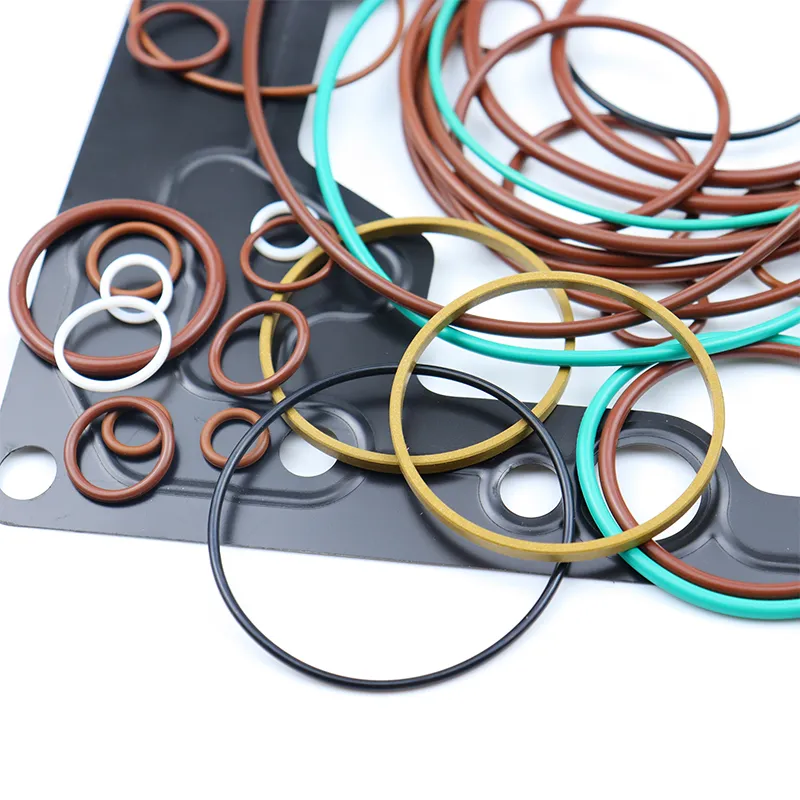Dec . 11, 2024 19:16 Back to list
Effective Dust Lip Seals for Enhanced Equipment Protection and Performance
Understanding Dust Lip Seals An Essential Component in Machinery
In the world of machinery and engineering, precision and protection are crucial elements that contribute to the efficiency and longevity of equipment. One often-overlooked component that plays a vital role in ensuring this protection is the dust lip seal. This article explores the function, importance, and applications of dust lip seals, highlighting their role in maintaining the integrity of mechanical systems.
What is a Dust Lip Seal?
A dust lip seal, often referred to as a dust seal, is a type of mechanical seal designed to prevent the ingress of dust, dirt, and other contaminants into the internal components of machinery. Typically made from elastomeric materials such as rubber or polymer, these seals feature a flexible lip that comes into contact with the surface they are sealing. The primary purpose of a dust lip seal is to ensure that the internal parts of a machine remain clean and lubricated, thereby reducing wear and tear over time.
Features and Design
Dust lip seals are engineered to meet specific requirements based on their intended application. Their design may vary significantly, reflecting factors such as
1. Material Composition Different materials exhibit varying levels of resistance to temperature, chemicals, and abrasion. Common materials include nitrile rubber (NBR), fluorocarbon rubber (FKM), and polyurethane, each selected based on the operational environment.
2. Lip Profile The geometry of the sealing lip is crucial in determining the effectiveness of the seal. Variations in lip design, such as the angle and shape, can influence the seal's ability to prevent the entry of contaminants while allowing for necessary movement between components.
3. Compression Set Good dust lip seals are designed to maintain their sealing properties over time and should exhibit minimal compression set — the ability to return to their original shape after being compressed.
4. Installation and Retaining Features Seals may include specific features that aid in installation and retention, ensuring they maintain a secure fit within the assembly.
dust lip seal

Importance of Dust Lip Seals
1. Contamination Prevention Dust and other particulates can cause significant damage to mechanical assemblies if allowed to infiltrate. Dust lip seals serve as the first line of defense, significantly reducing the risk of premature wear and catastrophic failure of components.
2. Enhanced Longevity By keeping contaminants at bay, dust lip seals contribute to the overall longevity and reliability of machinery. Equipment with intact seals is likely to experience fewer breakdowns, leading to lower maintenance costs and reduced downtime.
3. Improved Efficiency A clean operational environment allows for smoother movement of components and more efficient machinery performance. When internal components remain free of debris, they can work together more effectively, resulting in enhanced operational efficiency.
4. Protection Against Environmental Factors In addition to dust, these seals can also help shield machinery from exposure to moisture, harsh chemicals, and extreme temperatures, depending on their material properties.
Applications of Dust Lip Seals
Dust lip seals are utilized in a wide range of applications across various industries, including
- Automotive Used in wheel bearings, engines, and transmission systems to prevent dirt from entering critical components. - Construction Equipment Essential in machinery such as excavators and bulldozers, where exposure to abrasive materials is common. - Industrial Machinery Found in conveyors, pumps, and mixers, protecting bearings and gears from contamination. - Aerospace Used in aircraft components to ensure operational reliability while exposed to diverse environmental conditions.
Conclusion
In conclusion, dust lip seals are integral components that significantly contribute to the durability and reliability of mechanical systems. Their ability to keep contaminants at bay not only protects machinery from premature failure but also enhances overall performance and efficiency. In a world where machinery is often subjected to demanding conditions, understanding and implementing suitable dust lip seals is essential for maximizing the lifespan and reliability of equipment. As technology continues to evolve, so too will the design and materials used in dust lip seals, ensuring they meet the advancing needs of modern engineering.
-
TCN Oil Seal Metal Ring Reinforcement for Heavy Machinery
NewsJul.25,2025
-
Rotary Lip Seal Spring-Loaded Design for High-Speed Applications
NewsJul.25,2025
-
Hydraulic Cylinder Seals Polyurethane Material for High-Impact Jobs
NewsJul.25,2025
-
High Pressure Oil Seal Polyurethane Coating Wear Resistance
NewsJul.25,2025
-
Dust Proof Seal Double Lip Design for Construction Equipment
NewsJul.25,2025
-
Hub Seal Polyurethane Wear Resistance in Agricultural Vehicles
NewsJul.25,2025
-
The Trans-formative Journey of Wheel Hub Oil Seals
NewsJun.06,2025
Products categories
















